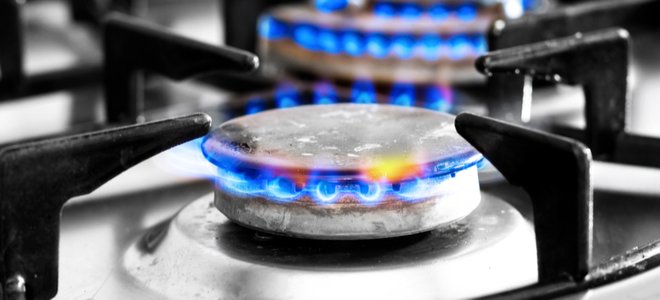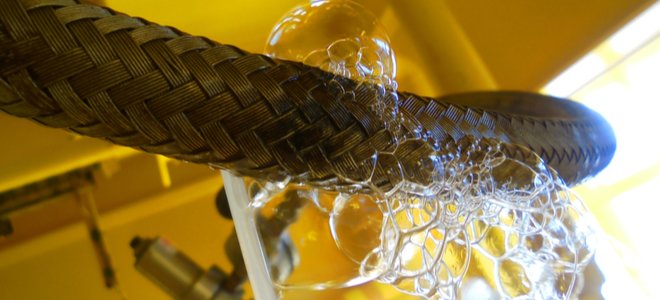
The idea of a gas leak in your home can be scary, especially when the source is a commonly used appliance like your oven. Here are some signs to look for if you suspect your stove is experiencing a gas leak.
There’s an Odor
It may sound weird, but your gas stove or oven smelling like gas could point to a leak. You’d think it’s somewhat normal for this appliance to smell this way, but it’s actually a sign of an issue. While gas is naturally colorless and odorless, manufacturers typically add a scent to gas called mercaptan to make it easier to detect a leak.
This scent usually smells like sulfur or rotten egg, and it’ll be hard to miss or ignore if it’s in your home. If you smell something off when using your stove or oven, that’s a big sign to get help.
Colored Flames
Slower leaks aren’t as easy to detect because they don’t usually let off that telltale odor. However, you can look for the signs of a leak in the color of the flames on your stovetop. A yellow or orange flame is a sign that there could be a leak. Strong gas flames are typically blue, which means that warmer colors can be worth looking into.

Faulty Pilot Light
A pilot light that won’t stay lit can also be a sign of a gas leak, so don’t dismiss this as a glitch if it happens to you.
Dying Houseplants
This may sound weird, but houseplants that die suddenly and unexpectedly could be a more subtle sign of a gas leak. Gas is harmful to plants and can lead to an early demise, even if they’re getting all the other attention they need.
Higher Utility Bills
Another item to look out for if you suspect a gas leak is a higher than usual gas bill, which makes sense when you think about it. Obviously, if your oven is leaking gas, you’ll use more gas than normal, leading to a higher bill.
Listen for Hissing or Whistling
A hissing or whistling sound near your gas line or around your oven is another sign of a leak to listen for. If you hear this, it’s something to look into further.
The Soapy Water Test

If you suspect that there’s a gas leak, there’s actually a pretty simple test you can do to get a better idea of whether your suspicions are correct. Mix a teaspoon of soap into a cup of water until they’re thoroughly combined. Then, douse the gas line and fittings in the solution. If bubbles appear, it means that gas is escaping from the line and should be addressed. It’s as simple as that!
What to Do If You Do Detect A Leak
If you strongly suspect or know there’s a gas leak with your oven, you’ll likely wonder what the next step is to address this issue. If this happens in your kitchen, make sure that you do not turn any lights or switches on or off in your kitchen. You also should avoid using matches or any other flames in the area. This includes smoking.
From there, go outside or go to a neighbor’s house to safely call the emergency line of your gas provider to make them aware of the issue. Then open as many doors and windows as possible to help flush the gas from your space.
If you know how to, now is a good time to turn off the valve that controls the gas supply into your home. If you don’t know how, avoid guessing and switching random valves and wait for the professionals to arrive to assist.
Once the professional from your gas provider arrives, they’ll be able to detect the exact source of the leak and they’re also a good resource for helping you determine someone that can actually fix the problem, as it definitely won’t go away on its own and will need to be tended to before you can use your oven again.
Don’t panic if you suspect an oven gas leak – just work to identify the issue and then act accordingly to safely get it fixed.
Source link : https://www.doityourself.com/stry/how-to-tell-if-your-gas-oven-has-a-leak












